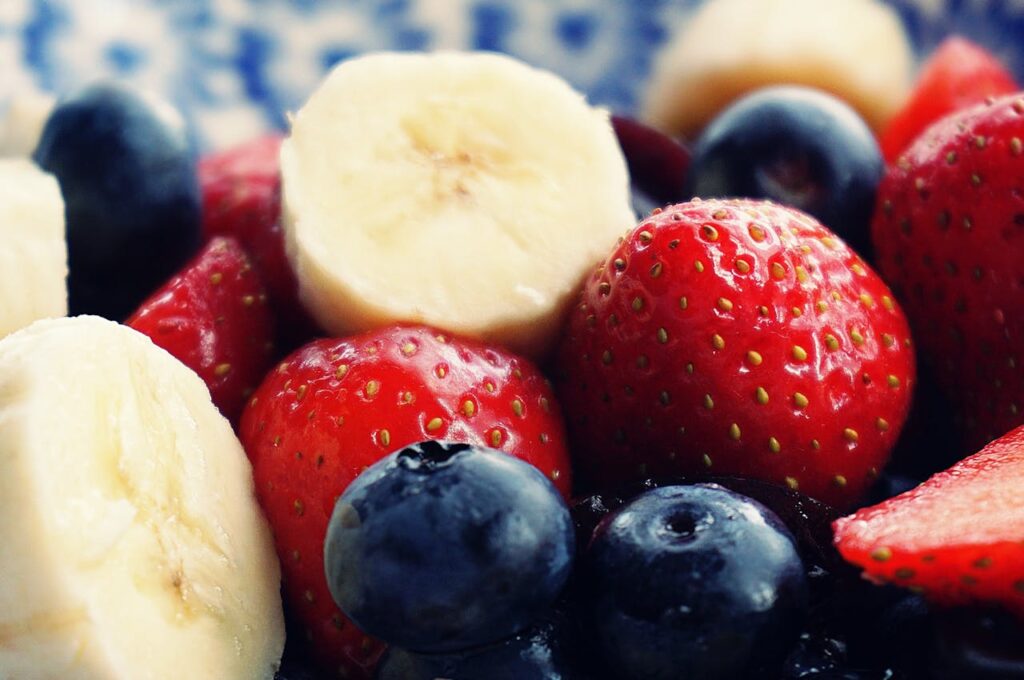
Table of Contents
Overview
Stone fruits, also known as drupes, are a diverse group of fruits characterized by their fleshy exterior and a hard, stone-like pit or seed at the center. This group includes many beloved fruits like peaches, cherries, mangoes, and more. Beyond their delicious flavors, stone fruits are packed with essential nutrients and offer a wide range of health benefits. In this comprehensive guide, we’ll delve into the nutritional profiles, health advantages, and various ways to incorporate these fruits into your diet.
Why Stone Fruits Are Good for You
Stone fruits are rich in vitamins, minerals, and powerful antioxidants that are essential for maintaining overall health. They contain high levels of vitamins A and C, which are crucial for immune function, skin health, and vision. Many stone fruits also provide a good source of dietary fiber, which aids in digestion and helps regulate blood sugar levels. Additionally, the antioxidant compounds in stone fruits, such as polyphenols, anthocyanins, and carotenoids, help protect the body against oxidative stress and inflammation, reducing the risk of chronic diseases like heart disease and cancer.
Stone Fruits and Their Health Benefits
1. Cherries
Cherries are not only a sweet treat but also a nutritional powerhouse. They are particularly high in antioxidants, especially anthocyanins, which give cherries their vibrant red color and help reduce inflammation in the body.
- Cherries are rich in vitamin C, potassium, and fiber. They have anti-inflammatory properties, which can help alleviate symptoms of arthritis and reduce the risk of heart disease. Cherries are also known to improve sleep quality due to their natural melatonin content.
2. Peaches
Peaches are another popular stone fruit that is both delicious and highly nutritious. They are low in calories but rich in vitamins and minerals, making them an excellent addition to any diet.
- Peaches are a good source of vitamins A and C, fiber, and potassium. The high levels of antioxidants in peaches, particularly the carotenoids like beta-carotene, can help protect your skin from sun damage and support eye health.
3. Mangoes
Mangoes are tropical stone fruits known for their sweet and tangy flavor. They are packed with nutrients and offer several health benefits.
- Mangoes are exceptionally high in vitamins A and C, which are important for immune function and skin health. They also contain a variety of antioxidants that help fight inflammation and may reduce the risk of certain cancers. Mangoes are also beneficial for digestive health due to their fiber content.
4. Plums
Plums are small, dark purple or red fruits with a juicy, sweet flesh. They are often enjoyed fresh or dried (as prunes) and are known for their digestive benefits.
- Plums are high in vitamin C, vitamin K, and fiber. They contain antioxidants like anthocyanins, which help protect against cell damage and inflammation. Prunes, or dried plums, are particularly known for their ability to promote digestive health and relieve constipation due to their high fiber and sorbitol content.
5. Apricots
Apricots are small, orange-colored stone fruits that are packed with nutrients. They can be enjoyed fresh, dried, or in various culinary dishes.
- Apricots are rich in vitamins A and C, potassium, and dietary fiber. They are also a good source of beta-carotene, which is important for eye health. The antioxidants in apricots help protect your skin from environmental damage and may reduce the risk of certain cancers.
6. Nectarines
Nectarines are closely related to peaches but have a smooth skin and a slightly firmer texture. They are juicy and flavorful, making them a popular summer fruit
Related: Fruits You Should Eat Daily for Optimal Health
- Nectarines are high in vitamins A and C, fiber, and potassium. They contain antioxidants like flavonoids, which help protect the body against oxidative stress and inflammation. Nectarines also support heart health by helping to lower blood pressure and cholesterol levels.
Lesser-Known Stone Fruits with Big Benefits
7. Lychees
Lychees are small, exotic stone fruits with a rough, red skin and juicy, translucent flesh. They are popular in Asian cuisine and are enjoyed fresh, dried, or as part of various desserts.
- Lychees are a rich source of vitamin C, providing more than 100% of the daily recommended intake in just one cup. They also contain antioxidants like polyphenols, which help protect the body against oxidative damage and support cardiovascular health.
8. Mulberries
Mulberries are sweet, dark berries that grow on trees. They are not as commonly consumed as other stone fruits but offer numerous health benefits.
- Mulberries are high in vitamin C, iron, and dietary fiber. They also contain resveratrol, a potent antioxidant that has been shown to support heart health and protect against certain cancers. Mulberries are also known for their ability to improve blood sugar control and support liver health.
9. Coconut
Coconut is a unique stone fruit that is enjoyed in many forms, including coconut water, milk, oil, and dried flakes. It is particularly popular in tropical regions and is a staple in many cuisines.
- Coconut is rich in dietary fiber, healthy fats (particularly medium-chain triglycerides), and minerals like manganese and copper. Coconut water is a natural source of electrolytes, making it an excellent choice for hydration. The healthy fats in coconut also support brain health and may improve cholesterol levels.
How to Incorporate Stone Fruits into Your Diet
Stone fruits are incredibly versatile and can be enjoyed in a variety of ways. Here are some ideas for incorporating these nutritious fruits into your daily meals:
- Smoothies: Blend your favorite stone fruits, like mangoes, peaches, or cherries, with yogurt and a handful of greens for a delicious and nutritious smoothie.
- Salads: Add sliced plums, nectarines, or apricots to your salads for a sweet and tangy twist. Pair them with leafy greens, nuts, and a light vinaigrette for a refreshing meal.
- Desserts: Use stone fruits like peaches and cherries in desserts, such as fruit crisps, tarts, or sorbets. The natural sweetness of these fruits makes them perfect for healthy, low-sugar treats.
- Snacks: Enjoy stone fruits on their own as a quick and healthy snack. Dried fruits like apricots and prunes are also convenient options for on-the-go snacking.
- Cooking: Incorporate stone fruits into savory dishes, such as grilled peaches with chicken or pork, or use them in sauces and chutneys to add a burst of flavor to your meals.
The Takeaway
Stone fruits are not only delicious but also packed with essential nutrients that support overall health. From reducing inflammation to promoting heart and digestive health, these fruits offer a wide range of benefits that make them a valuable addition to any diet. By incorporating a variety of stone fruits into your meals, you can enjoy their diverse flavors while reaping the nutritional rewards. Whether eaten fresh, dried, or cooked, stone fruits are a tasty and healthful choice for every season.
Embrace the diversity of stone fruits and explore the many ways they can enhance your diet and support your health
FAQs on Stone Fruits and Their Health Benefits
What are stone fruits, and why are they called that?
- Stone fruits, also known as drupes, are fruits that have a fleshy exterior and a hard, stone-like pit or seed inside. The term “stone fruit” comes from the hard pit, or “stone,” that protects the seed inside. Examples of stone fruits include peaches, cherries, mangoes, and plums.
Are stone fruits good for weight loss?
- Yes, stone fruits can be beneficial for weight loss. They are generally low in calories and high in dietary fiber, which can help you feel full and satisfied, reducing overall calorie intake. Additionally, the natural sugars in stone fruits provide a sweet taste without the need for added sugars.
How can I include more stone fruits in my diet?
- Stone fruits can be easily incorporated into your diet in various ways. You can add them to smoothies, salads, and desserts, or enjoy them as a snack on their own. Dried stone fruits like apricots and prunes are also convenient for on-the-go snacking. They can also be used in cooking, such as in sauces or grilled with meats.
Do stone fruits have any health risks or allergens?
- While stone fruits are generally healthy, some people may have allergies to certain stone fruits, particularly those with oral allergy syndrome (OAS). Symptoms can include itching or swelling of the mouth and throat. Additionally, the pits of stone fruits should not be consumed, as they contain compounds that can be toxic if ingested in large amounts. Always consult with a healthcare professional if you have concerns about food allergies or sensitivities.











